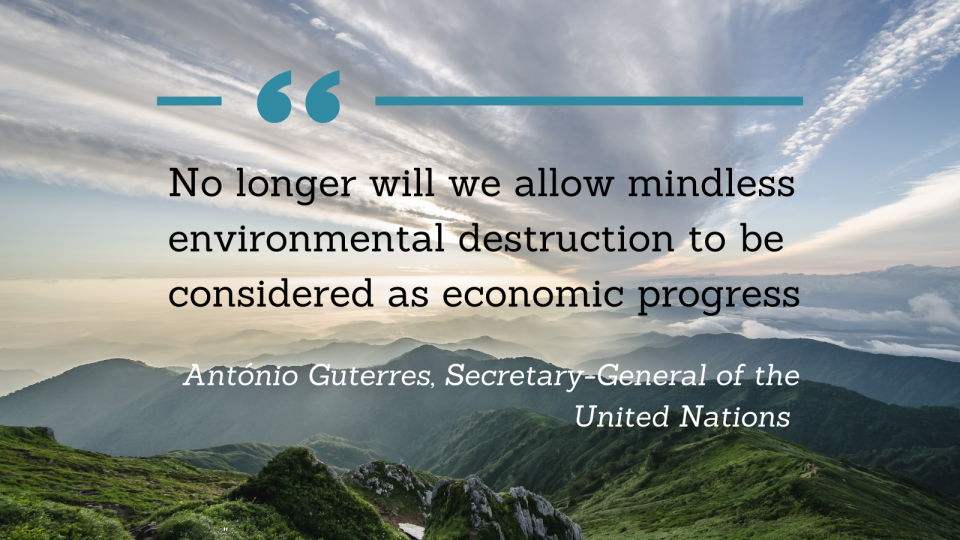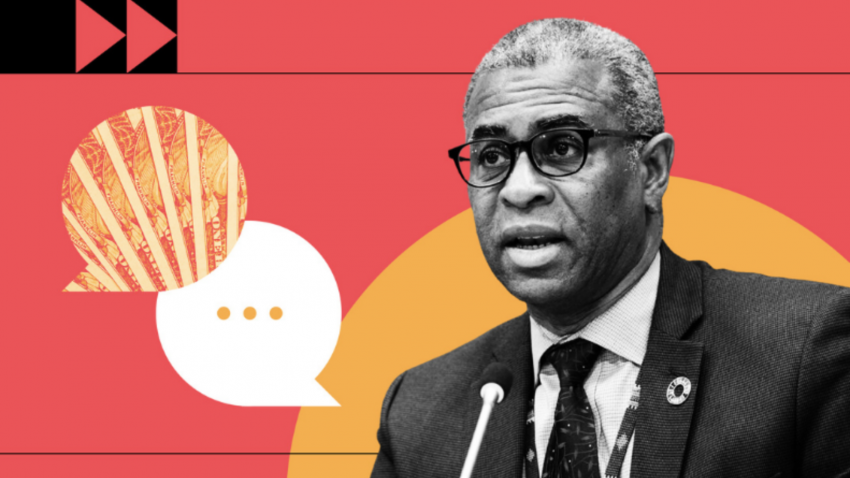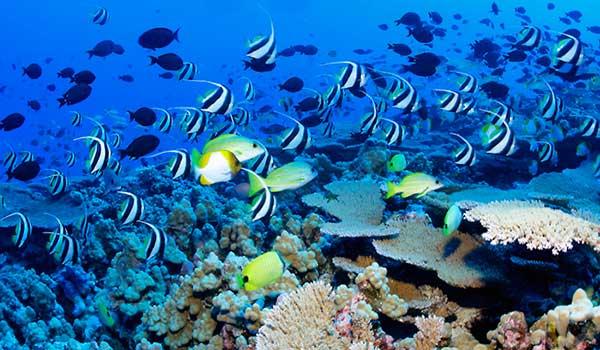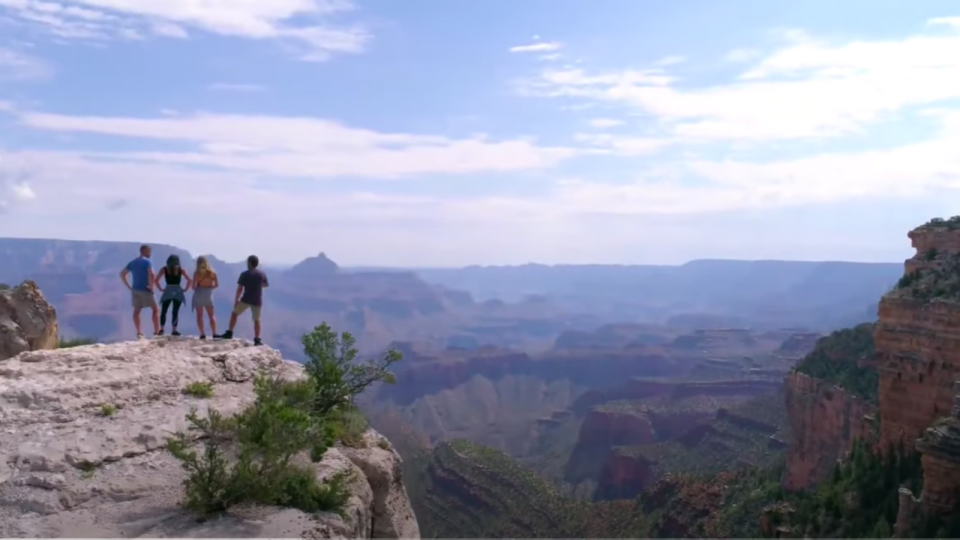Ecosystem Accounting in the News

The 52nd United Nations Statistical Commission, on March 2021, has adopted the System of Environmental-Economic Accounting—Ecosystem Accounting (SEEA EA) This new statistical framework will enable countries to measure their natural capital and understand the immense contributions of nature to our prosperity and the importance of protecting it.
On the adoption of the SEEA EA framework, the Secretary-General of the United Nations, António Guterres said:
"The adoption of this economic and environmental framework is a historic step towards transforming the way how we view and value nature. No longer will we allow mindless environmental destruction to be considered as economic progress."
“Nature’s resources still do not figure in countries’ calculations of wealth. The current system is weighted towards destruction, not preservation.”
“The bottom line … is that we need to transform how we view and value nature. We must reflect nature’s true value in all our policies, plans and economic systems. The rewards will be immense.”
The Assistant Secretary-General for Economic Development and Chief Economist, Elliott Harris said:
"The new framework will allow us to see how our economic activities may affect our ecosystems, how the presence of nature affects us, and how our activities could be changed to achieve prosperity without damaging or destroying nature in the process."
"If we put a value on nature, then we will measure it. If we measure it, we can manage it. If we manage the value, we avoid destroying it."
“We’ve treated nature as if it were free and as if it were limitless. So, we have been degrading nature and using it up without really being aware of what we were doing and how much we were losing in the process.”
The Executive Director of UN Environment, Inger Andersen said:
“This is a major step forward. The new framework can be a game changer in decision-making."
“By highlighting the contribution of nature, we now have a tool that allows us to properly view and value nature. It can help us bring about a rapid and lasting shift toward sustainability for both people and the environment.”
The Executive Secretary of the Secretariat of the Convention on Biological Diversity, Elizabeth Maruma Mrema said:
“As governments to the Convention on Biological Diversity get ready to agree and implement the post-2020 biodiversity framework that will recraft our relationship with nature, this new ecosystem accounting framework will provide an impetus for an accurate accounting of the value of biodiversity. In so doing, it is a step towards sustainable development.”
Executive Vice-President of the European Commission, Frans Timmermans said:
"To tackle the climate and biodiversity crises we have to transform our economic model. This new statistical framework moves beyond GDP and takes better account of biodiversity and ecosystems in national economic planning. It is a major development in changing the way we think about prosperity and wellbeing."
European Commissioner for Environment, Oceans and Fisheries, Virginijus Sinkevičius added:
“Whereas nature contributes substantially into our economy, it is largely invisible in our economic statistics. We need to transform how we view and value nature and make its contribution to our life part of the economic equation. For that, we need robust methods to track investments, impacts and dependencies on nature. The new framework is a major step in this direction, as it could fundamentally reorient economic and policy planning toward sustainable development.”
World Bank’s Global Director for Environment, Natural Resources and Blue Economy Global Practice, Karin Kemper:
"This is a giant leap towards measuring nature’s contributions to the economy."
Press releases
Countries adopt SEEA EA framework to integrate natural capital in economic reporting
UN press release, March 10, 2021: The System of Environmental-Economic Accounting—Ecosystem Accounting (SEEA EA) — was adopted by the UN Statistical Commission in a move that UN Secretary-General Antonio Guterres characterized as a "historic step forward towards transforming how we view and value nature."






